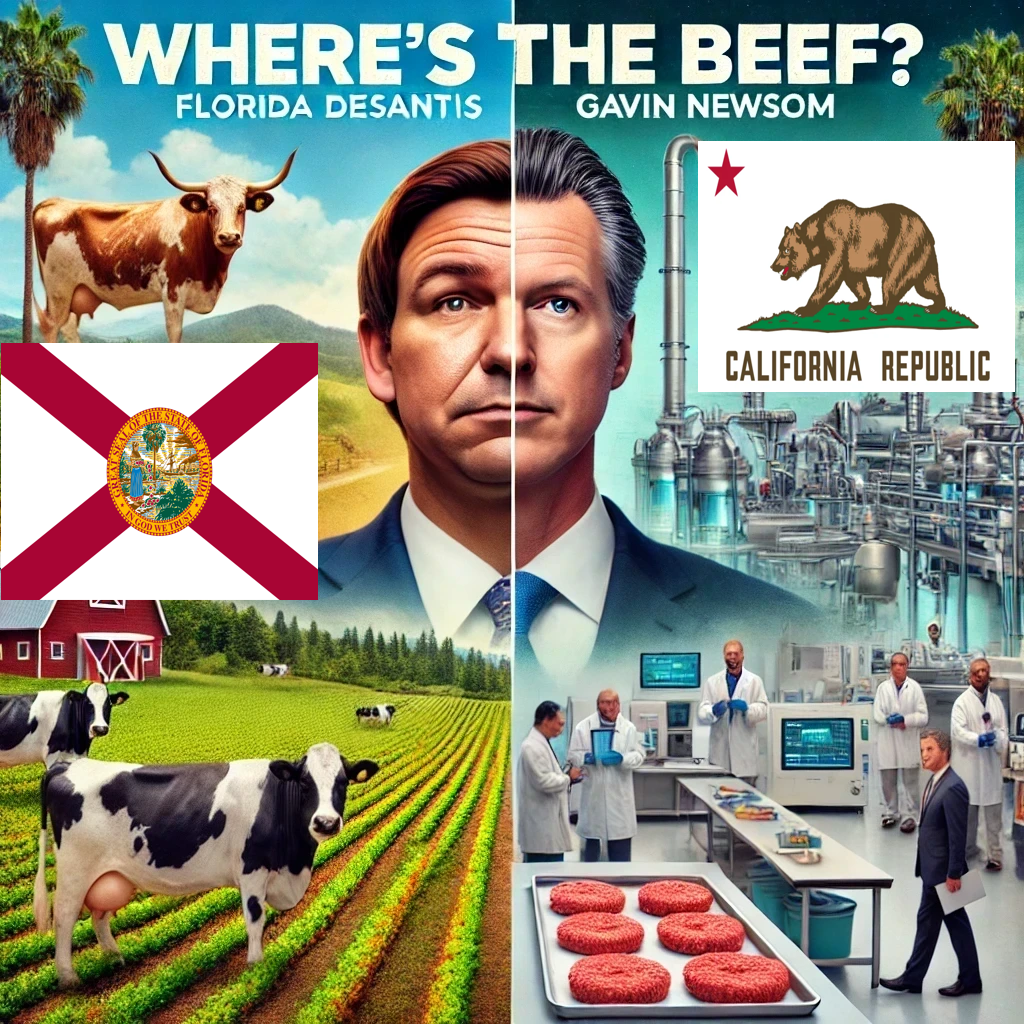The debate over lab-grown meat has placed two of America’s most prominent governors, California’s Gavin Newsom and Florida’s Ron DeSantis, on opposite sides of a growing issue. Their contrasting approaches reflect broader ideological differences in how each leader views the intersection of innovation, agriculture, and economic policy.
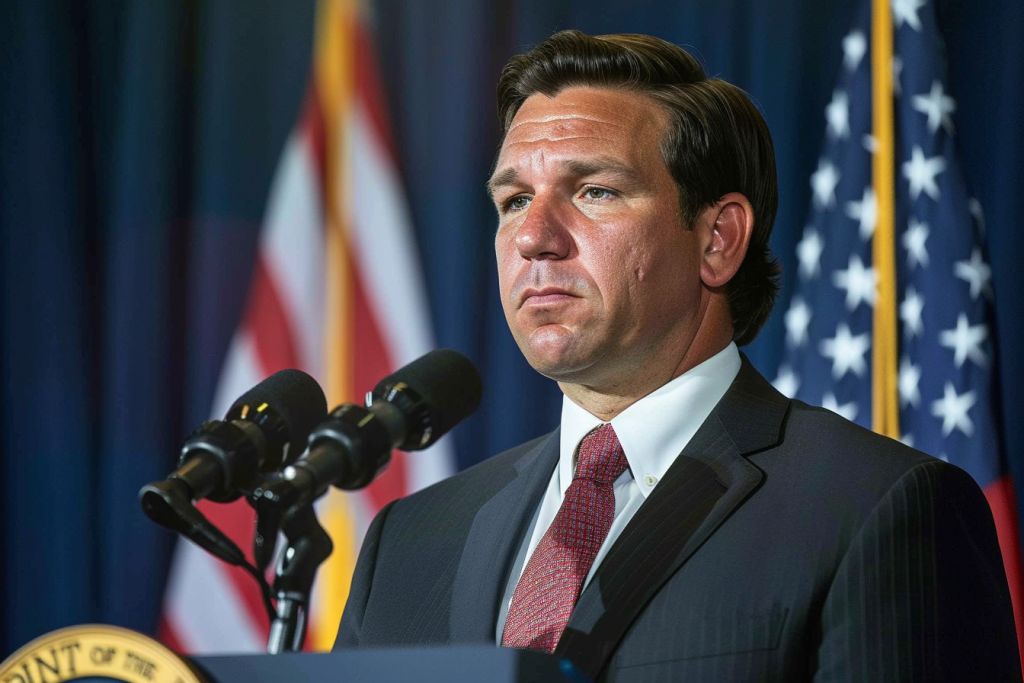
Governor Ron DeSantis of Florida has taken a staunchly protective stance against lab-grown meat. In May 2024, DeSantis signed a bill that banned the production, distribution, and sale of lab-grown meat in the state. His rationale is rooted in preserving Florida’s traditional agricultural industry.
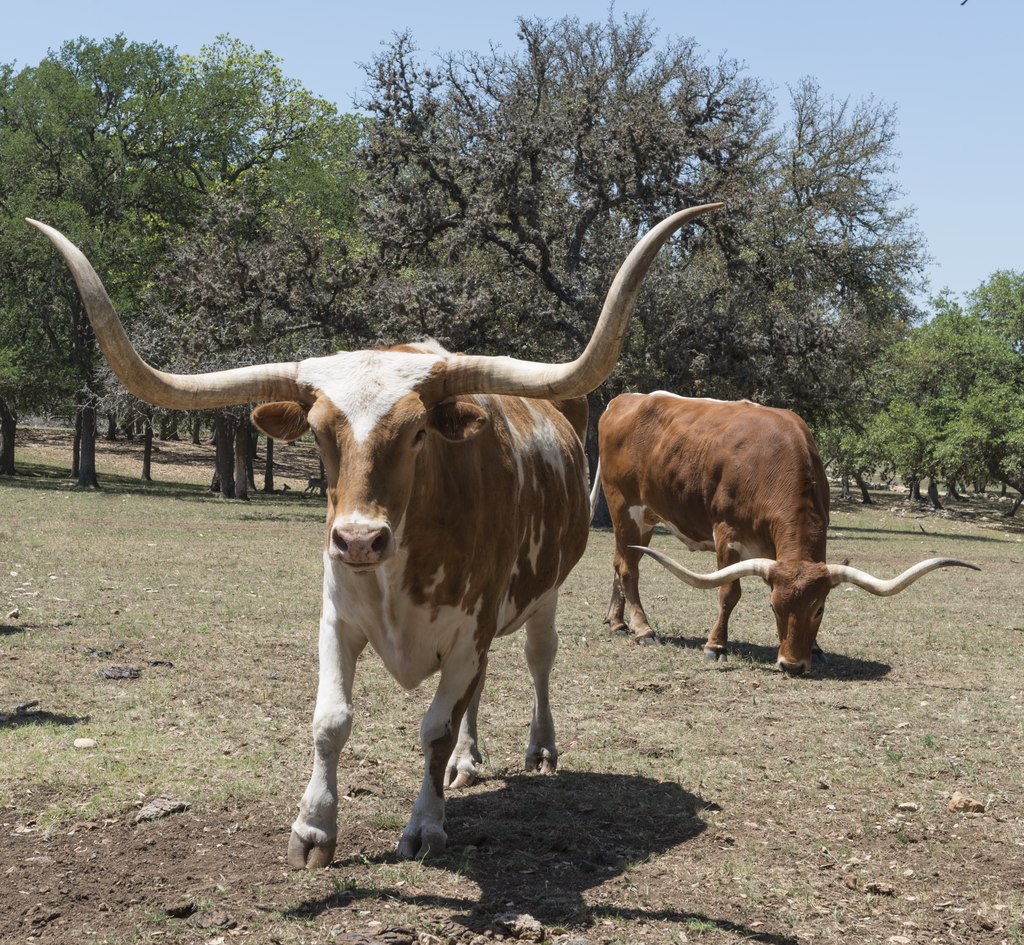
DeSantis argues that lab-grown meat threatens the livelihood of local farmers and ranchers, which he sees as integral to Florida’s heritage and economy. DeSantis’s rhetoric against lab-grown meat has also been tinged with populist undertones, casting the issue as a battle against global elites and their alleged attempts to dictate food choices to Floridians.
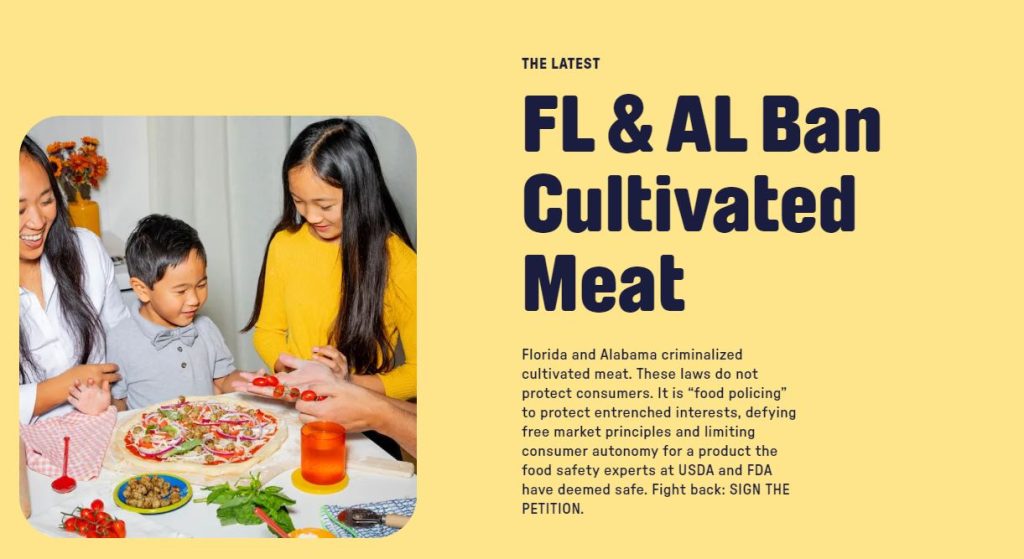
DeSantis’s position has attracted criticism, particularly from companies like UPSIDE Foods, a leader in the lab-grown meat industry, which has filed a federal lawsuit against Florida’s ban. The lawsuit argues that the ban is unconstitutional and protectionist, undermining the principles of a free national market by favoring in-state businesses over out-of-state competitors. The legal battle highlights the tension between traditional agricultural interests and emerging food technologies, with DeSantis firmly on the side of the former.
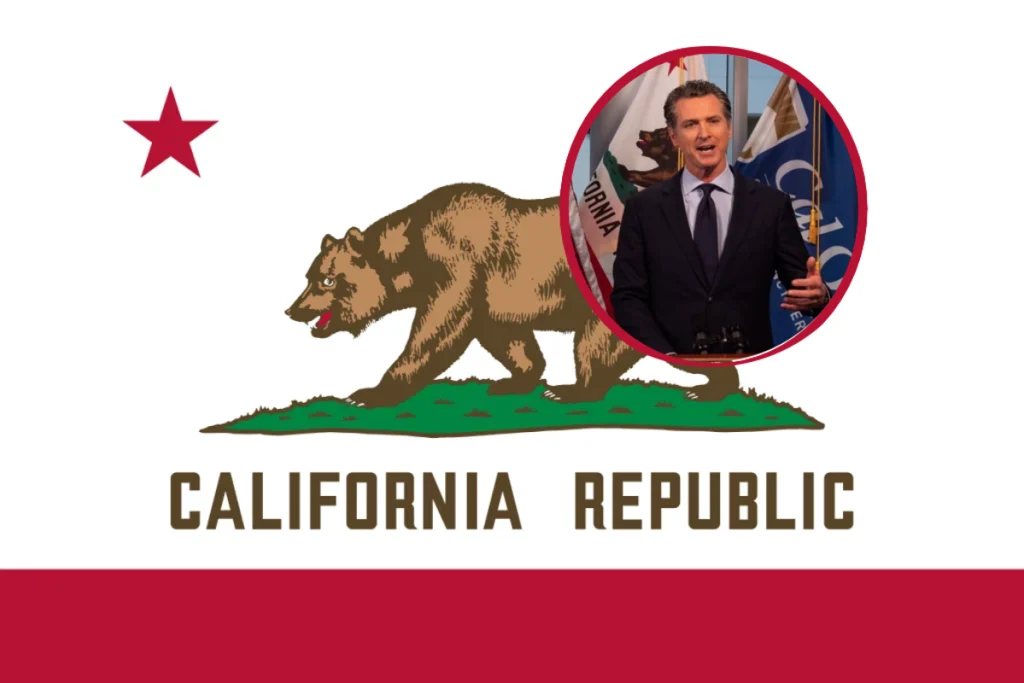
Governor Gavin Newsom of California has embraced the potential of lab-grown meat as part of the state’s broader commitment to innovation and sustainability. Under the California Budget Act of 2022, Newsom allocated $5 million to the University of California system specifically for the research and development of plant-based and cultivated meats. This investment, spread across three major campuses—UCLA, UC Berkeley, and UC Davis—signals California’s support for a technology that could revolutionize food production.
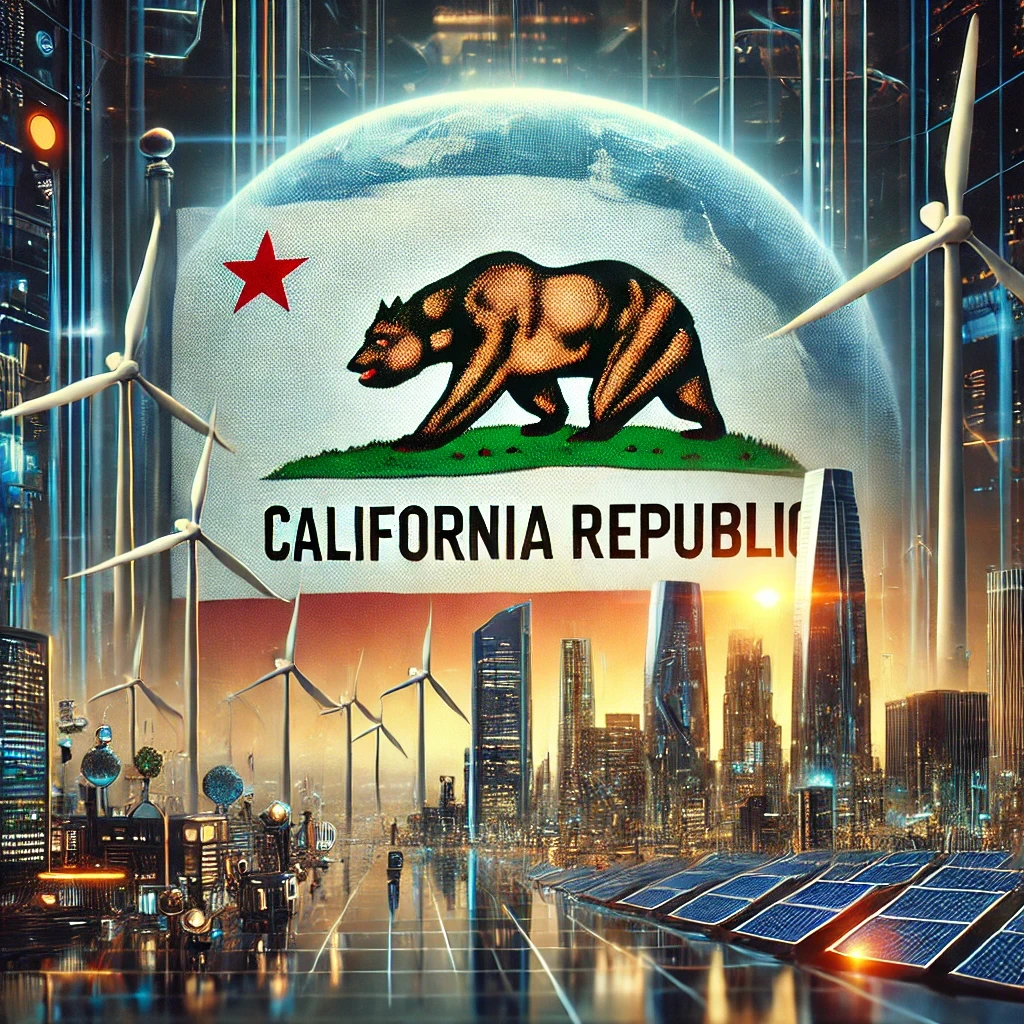
Newsom’s approach reflects California’s role as a global leader in technological advancement and environmental sustainability. The state’s investment in lab-grown meat research is part of a broader strategy to reduce the environmental impact of traditional meat production, which is known for its heavy water use and contribution to greenhouse gas emissions. By supporting the development of lab-grown meat, Newsom is betting on California’s ability to lead in creating a more sustainable and innovative food industry.
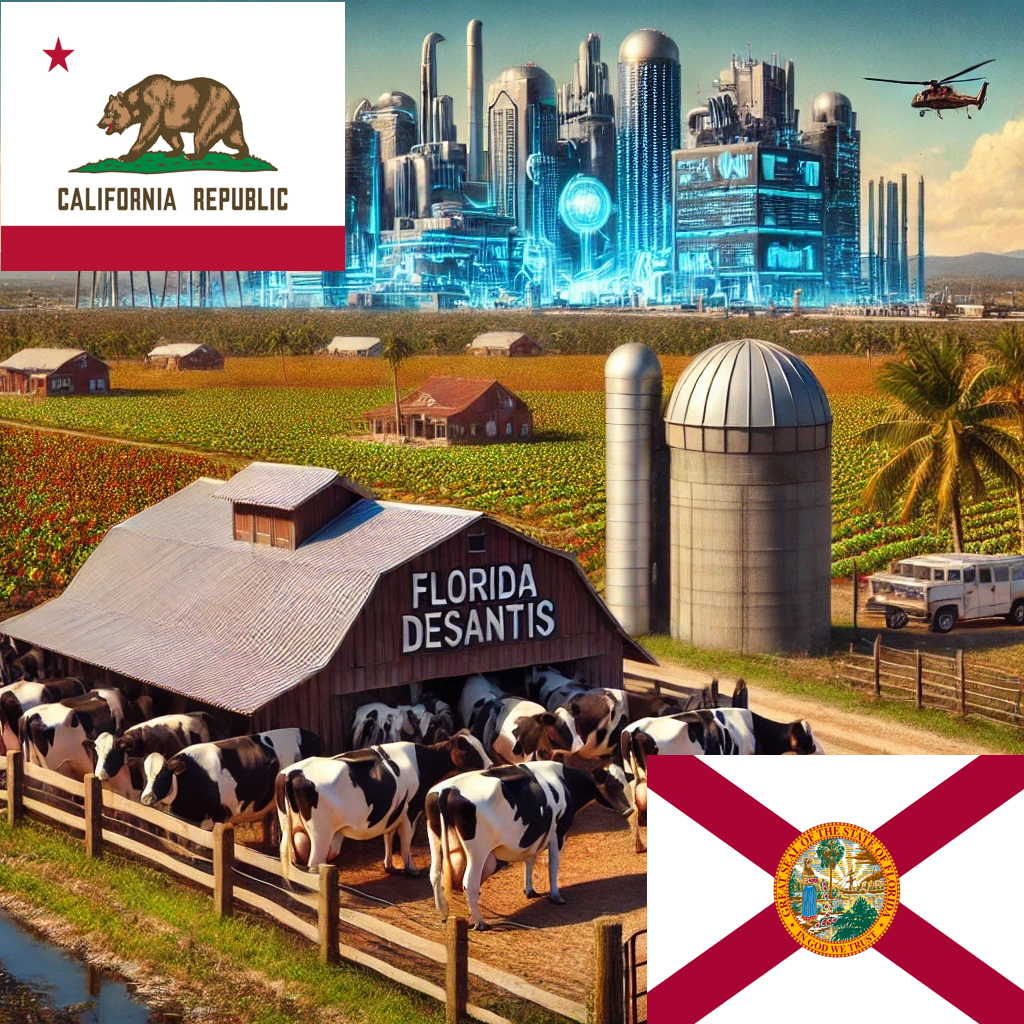
The differing stances of DeSantis and Newsom illustrate a broader cultural and economic divide between their states. Florida, under DeSantis, has positioned itself as a defender of traditional industries and local businesses, even at the cost of stifling emerging technologies. California, under Newsom, is continuing its tradition of fostering innovation, even if it means disrupting established industries.
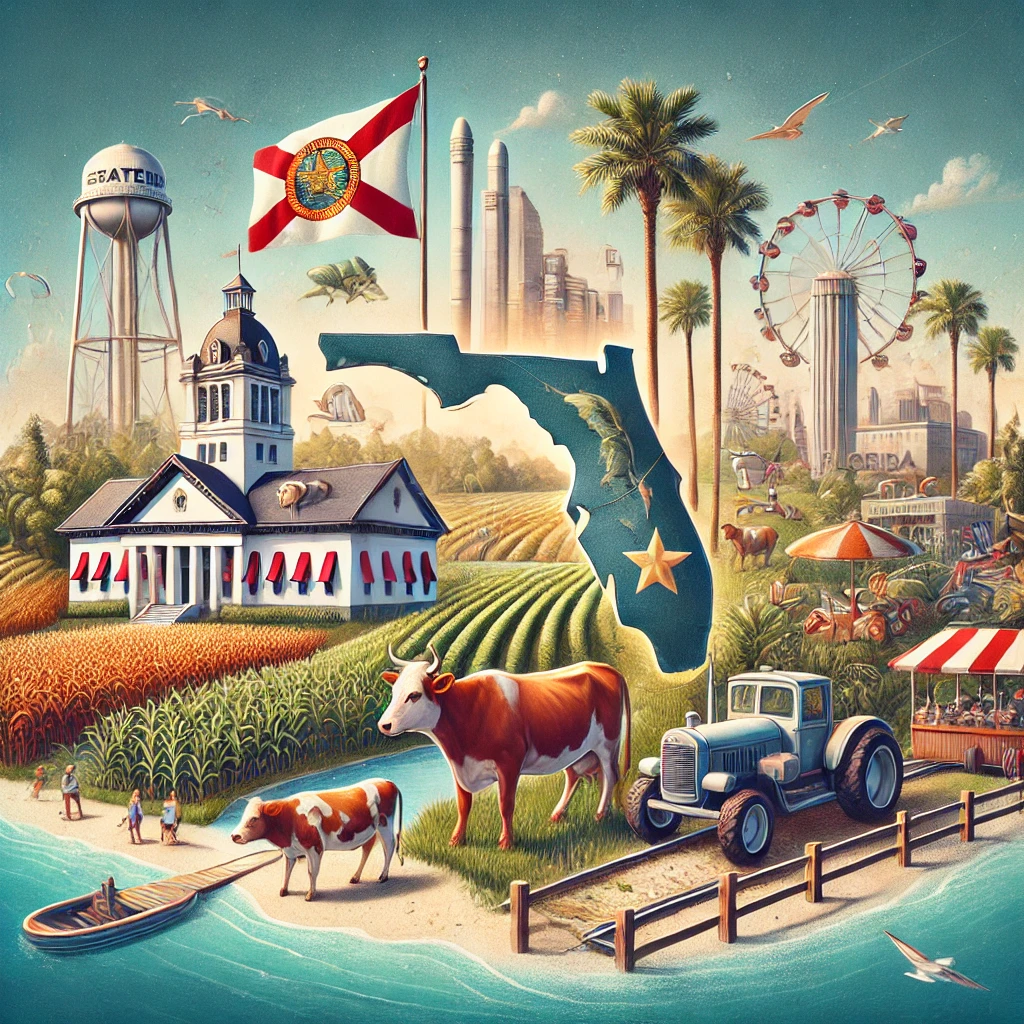
This divide also speaks to the governors’ contrasting visions for their states’ futures. DeSantis’s policies are shaped by a desire to protect and preserve Florida’s existing economic structures, particularly its agriculture. Newsom, on the other hand, is focused on positioning California at the forefront of global technological and environmental progress, even if it means challenging the status quo.
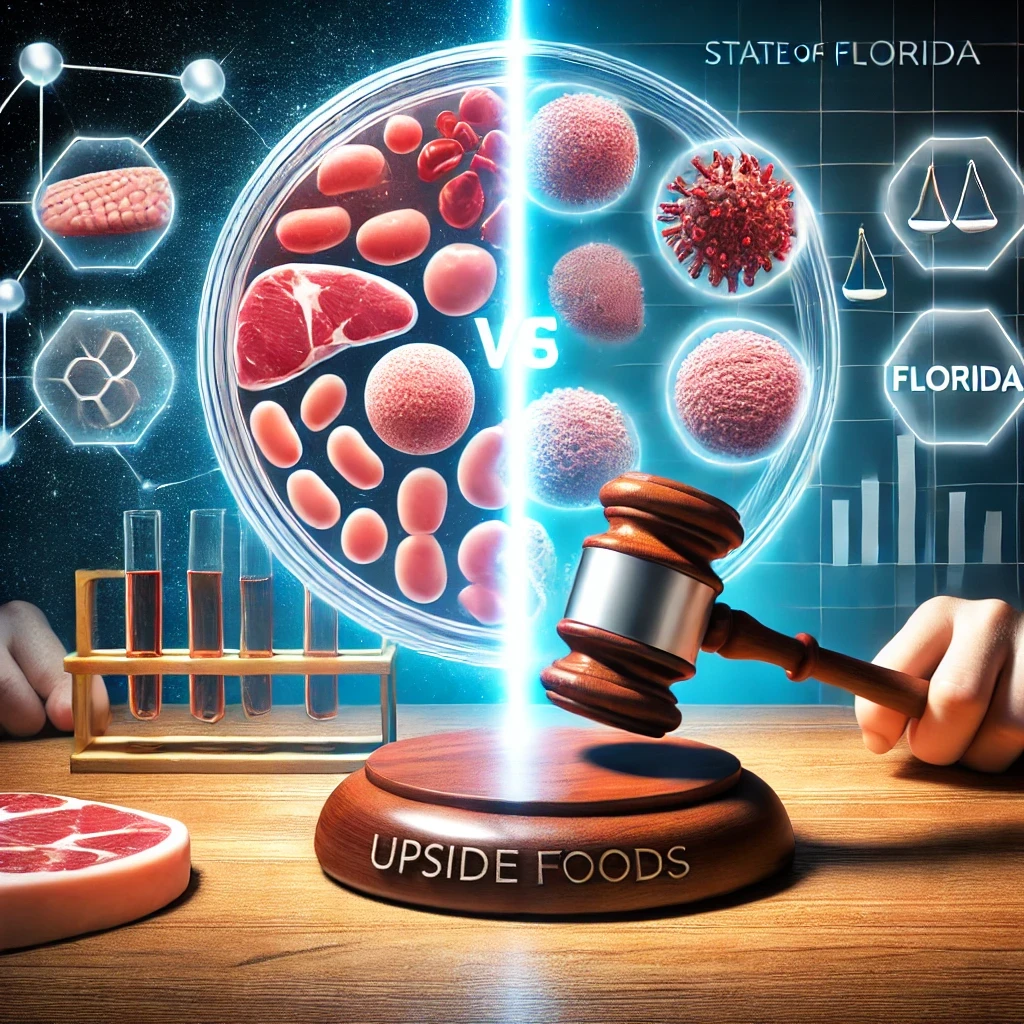
The legal and political battles over lab-grown meat in Florida could have broader implications for the national conversation on food innovation. If UPSIDE Foods succeeds in its lawsuit, it could pave the way for lab-grown meat to be sold across the country, potentially undermining state-level bans like Florida’s. Meanwhile, California’s continued investment in this technology could accelerate its adoption, making lab-grown meat a more common fixture in American diets.
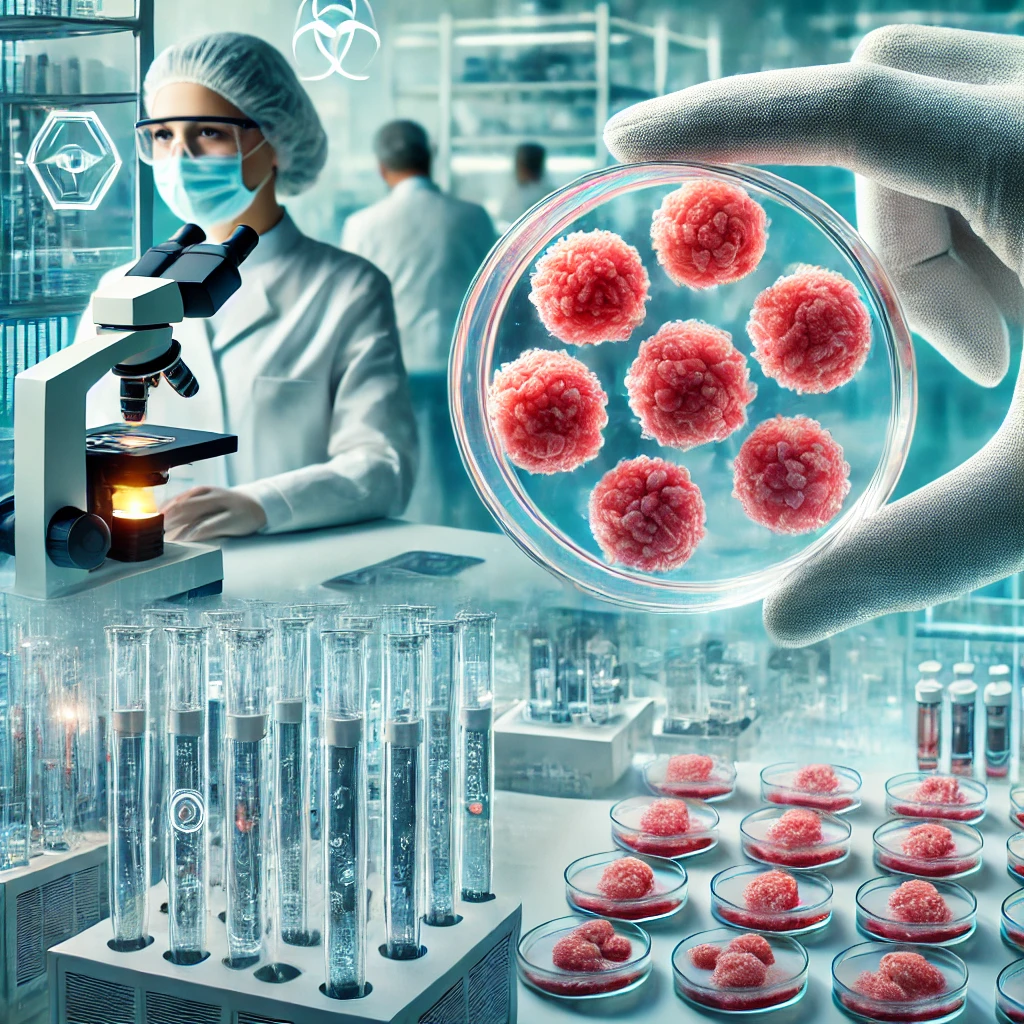
While Governor DeSantis of Florida sees lab-grown meat as a threat to traditional agriculture, Governor Newsom of California views it as an opportunity for innovation and sustainability. Their divergent approaches not only reflect their states’ economic priorities but also highlight the broader ideological differences that shape their governance. As the debate over lab-grown meat continues, the policies of these two influential governors will likely play a significant role in determining the future of food in America.

